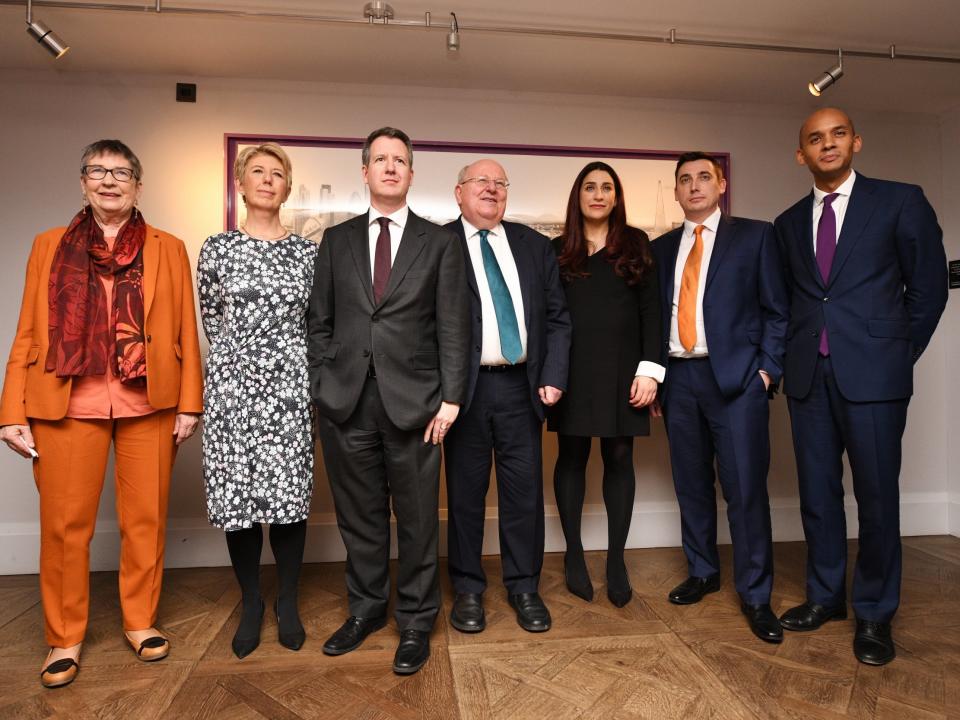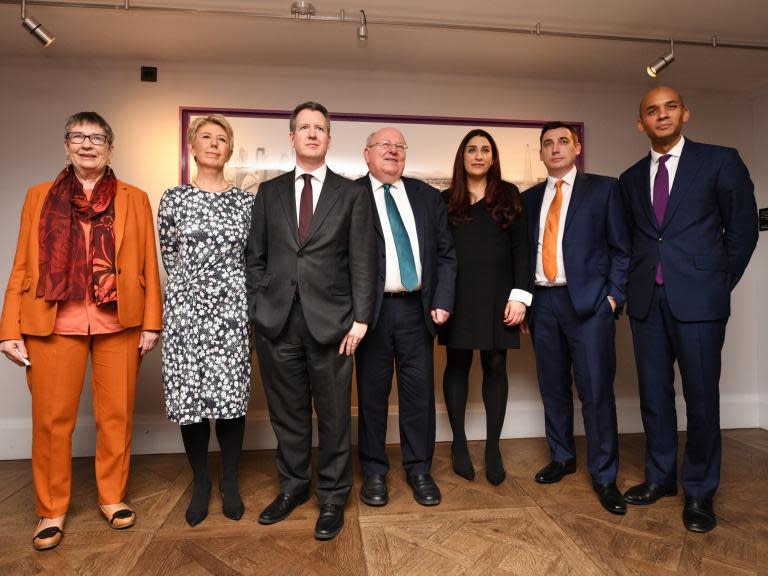Independent Group can only succeed by offering a clear message about what it stands for, not what it opposes
Call them the Seven Dwarves, the Magnificent Seven, or by any other film-related numeric that takes your fancy, the best thing so far about the group of Labour refugees is what they collectively call themselves.
I can’t quite put my finger on why, but something about the Independent Group rings a bell. We all want to be independent, or at least to feel that way.
Yet appealing as it might be for an embryo, the name won’t do for any newborn that emerges – more than three years after Jeremy Corbyn’s election sowed the seed – from the longest gestation period in recorded history.
National party politics is not about independence. It is about the mutual interdependence of those at either end of a spectrum and everywhere in between.
It’s about sustaining the loyalty of those with different opinions, and subsuming the differences within a coherently identifiable world view.
When a party loses the ability to do that, it fractures.
Labour is breaking up for a variety of reasons (Brexit, antisemitism, the residual Blairite sense of entitlement, vicious abuse of MPs by a noisy minority of members). Whether it faces the threat of an extinction level event will turn on various factors.
Does Jeremy Corbyn actively want to restrict the exodus? Or does he, when he’s digging up the spuds, fantasise to the point of tumescence about ideologically purifying the parliamentary party by tacitly inveigling more, via his trademark inaction, to leave?
How many Conservatives, if any, will join the seven? With Anna Soubry and Sarah Wollaston overtly on the brink, it’s assumed that others are less transparently giving it thought. If a band of centrist Tories linked up with the Labour refuseniks, whatever they group called itself would begin to look like a centrist movement.
Since we already have one of those, reduced as it is, another question is whether Chuka Umunna, Luciana Berger et al are prepared to ally themselves with the Liberal Democrats, who, as the only mainstream national party that resolutely opposed Brexit from the start, are well positioned to cash in when it’s finished.
Elsewhere at The Independent, Vince Cable offers them cooperation immediately over Brexit but beyond that in time, with tempting reference to the value of the Lib Dem national infrastructure. They would be demented not to take him up on that.
But the grandest question for the longer term is this: however many the total becomes, whatever alliances it makes, can this group produce a sufficiently clear and positive message to siphon away the support of disaffected Labour and Tory voters?
The initial signs were not encouraging. At yesterday’s pseudo-launch, the de facto leadership of the heavily pregnant Berger was impressive. But the language was vague, Umunna’s talent remains the prisoner of his vanity, and Angela Smith misspeaking about skin hue suggested she’d misread the directions to a stroke clinic.
As for the veteran Mike Gapes, you wonder if his primary motive is to avoid being the jackpot answer to a question on Pointless about people whose names are full grammatical sentences. If Gordon Banks would get 32, and the promising Spurs midfielder Harry Winks four or five, even after this, Mike Gapes would be lucky to get one.
The gang of four that launched the SDP, in a superficially similar era of partisan division, were three and a half political all-stars (Bill Rodgers being the half). In stature and experience, the seven combined don’t add up to a single Shirley Williams.
This is not to discount either their individual courage in risking their incomes, or their collective potential to loosen the floodgates. They’ve put down a marker that dozens of Labour malcontents and a good few Tories might pick up if and when Brexit has its calamitous denouement. The trickle could become a gush.
Even then, the swelling of numbers wouldn’t be enough. This political mould was set in stone a long time ago. For the almost century since the last Liberal government, the two parties have duopolised the holding of power. Their demises have routinely been predicted. They have survived because in the public mind they represent a sufficiently strong and simplistic raison d’etre – the Tories to protect capital; Labour to defend the underdog – to maintain the tribal loyalty.
At this moment, with their leaders peevishly colluding over Brexit to threaten the wealth of those who have it and the scope to redistribute it to those who don’t, both are vulnerable. The stone in which the mould is set may be crumbling, but it has crumbled before and been restored.
To have a chance of smashing it, this group will have to be more than a support group for discontents. It needs money, organisation and discipline. It needs to work closely with the Lib Dems and the other opposition parties. It needs Tony Blair’s brilliance at communication, and to avoid any whiff of his toxic fingers pulling the strings.
It sorely needs to persuade appealingly commonsensical centrists, such as Wollaston and Labour’s Stella Creasy, that their parties are so irredeemably the hostages of partisan memberships that it would be futile to stay and fight from within.
It needs, above all else, a precise message about not what it opposes, but what it believes.
If the seven can come up with that, they might represent a magnificent challenge to a dismal status quo. If not, it’s hi-ho, hi-ho, off to work in another career they go.

 Yahoo News
Yahoo News 

